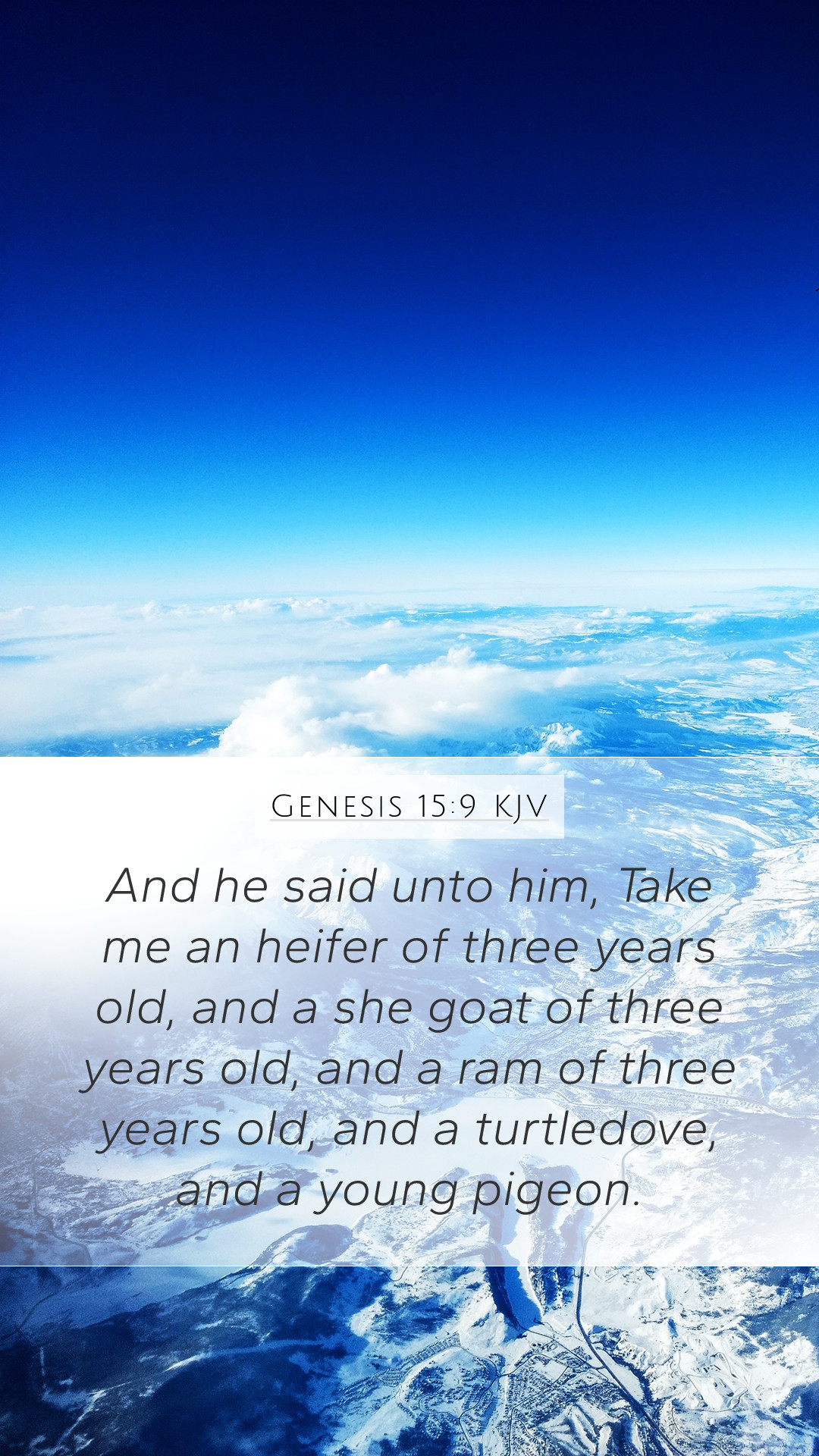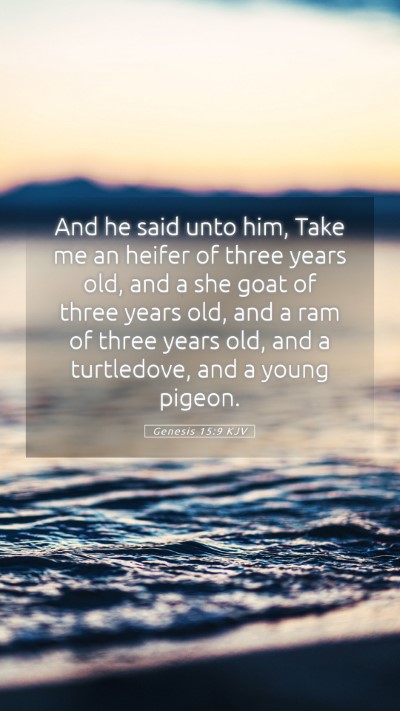Understanding Genesis 15:9
Genesis 15:9 states: "And he said unto him, Take me an heifer of three years old, and a she goat of three years old, and a ram of three years old, and a turtledove, and a young pigeon." This verse marks a pivotal moment in the biblical narrative, where God establishes a covenant with Abram (later known as Abraham). To fully appreciate this verse, we can draw insights from various public domain commentaries.
Bible Verse Meanings and Interpretations
This verse signifies the beginning of a formal covenant between God and Abraham, a moment steeped in profound meaning. The specific animals mentioned symbolize the seriousness and sanctity of the covenant. Let's delve into the interpretations provided by renowned biblical commentators:
-
Matthew Henry's Commentary:
Matthew Henry emphasizes the significance of the sacrificial offerings. He notes that God asks for specific animals to demonstrate the seriousness of the covenant. The heifer, goat, and ram represent the sacrificial system that is central to worship and atonement in Hebrew tradition. The requirement for animals of specific ages (three years) indicates a standard of quality and the best offerings that should be given to God.
-
Albert Barnes' Notes:
Barnes highlights the importance of blood covenants in ancient Near Eastern culture. He explains that the animals are to be cut in two, foreshadowing the covenant relationship that God seeks with Abram. This act demonstrates the binding nature of the covenant; just as the animals are divided, so too may the parties involved be subject to serious consequences if they break the covenant.
-
Adam Clarke's Commentary:
Clarke interprets the selection of these specific animals as reflective of God's desire for purity and commitment in the covenant. He connects the act of sacrifice with the broader theme of redemption, suggesting that these offerings point to God’s ultimate plan through Christ. Clarke also notes that the number three often symbolizes completeness or divine perfection in Scripture.
Significance of Genesis 15:9
To fully grasp the significance of Genesis 15:9, we must consider both the cultural context and the theological implications:
-
Cultural Context:
The act of making a covenant in the ancient world often involved animal sacrifice. By dedicating specific animals, Abram is participating in a traditional practice that signifies trust and obligation between parties.
-
Theological Implications:
This verse serves as a precursor to understanding the deeper theological truths that unfold throughout the Scripture, particularly regarding God's faithfulness and the believer's response to divine promises.
Cross References
Genesis 15:9 has several related verses that enhance understanding:
- Genesis 15:10: Discusses the act of cutting the animals in two, establishing the nature of the covenant.
- Exodus 24:8: Provides a parallel to the covenant made with Israel, involving blood and sacrifices.
- Hebrews 9:20: Reflects on the significance of blood in establishing covenants, linking Old Testament practices to New Testament theology.
Application of Genesis 15:9 in Daily Life
Understanding Genesis 15:9 can significantly enrich our Bible study lessons and personal faith:
- Commitment to God: Just as Abram was asked to offer valuable sacrifices, we are called to offer our lives as living sacrifices, committed to God's purpose (Romans 12:1).
- Understanding of Covenants: This verse encourages believers to grasp the importance of covenants in their relationship with God, promoting a deeper understanding of biblical commitments.
- Historical Context: Engaging with the historical backdrop enriches our understanding of Scripture, aiding in the interpretation of difficult Bible passages.
Conclusion
The study of Genesis 15:9 provides profound insights into the nature of God's covenants and the expectations they carry. As we explore Bible verse meanings, interpretations, and explanations, this verse reminds us of the importance of commitment in our relationship with God.


